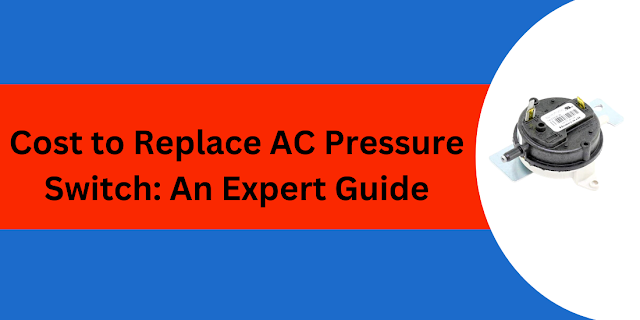How to Identify A Faulty Carrier Condenser Fan Motor
The Carrier condenser fan motor is a vital component in your HVAC system, responsible for cooling and heat exchange. When it begins to fail, it can lead to various issues that affect your system's overall performance. Identifying a faulty fan motor early is crucial for preventing costly repairs and ensuring your unit operates efficiently. In this article, we’ll highlight the common signs of a malfunctioning Carrier condenser fan motor, helping you recognize problems before they worsen.
Common Signs of a Faulty Carrier Condenser Fan Motor
If you notice any of the following symptoms in your HVAC system, it may indicate that the Carrier condenser fan motor is malfunctioning.
1. Reduced Cooling Efficiency
One of the first and most noticeable signs of a faulty condenser fan motor is a reduced cooling efficiency. If the fan motor isn’t operating properly, it can prevent the refrigerant from cooling as it should. As a result, you may notice that the air conditioning unit is struggling to keep your home cool, and the temperature may not reach the desired setting. The lack of proper heat exchange will prevent your system from reaching peak performance.
2. Unusual Noises
A healthy Carrier condenser fan motor should run quietly. If you start hearing strange noises, such as grinding, squealing, or buzzing, it’s a clear indication that something is wrong with the motor. These noises often arise from mechanical or electrical issues:
Grinding: This could indicate that the motor’s bearings are worn out or need lubrication.
Squealing: This may suggest that the fan blades are misaligned or obstructed.
Buzzing or humming: This is often a sign of electrical issues, such as a defective capacitor or a seized motor.
These noises can signal a problem that requires professional attention, so don’t ignore them.
3. Overheating of the Unit
Another telltale sign of a failing condenser fan motor is when the unit begins to overheat. The fan motor is responsible for cooling down the refrigerant in the condenser coil, and if the motor isn’t functioning properly, the system will overheat. This can cause your air conditioner to shut down automatically as a safety measure or result in damage to the compressor or other components. Overheating is a serious issue and must be addressed promptly to avoid further damage.
4. Condenser Fan Not Turning
If you notice that the condenser fan is not turning at all, it’s a clear sign that the fan motor is likely defective. The motor could have failed, or the fan might have been obstructed by dirt or debris. In some cases, the motor may have worn-out bearings or a damaged capacitor that prevents it from starting. If the fan blades don’t turn even after clearing any potential obstructions, the motor will need to be inspected or replaced.
5. Tripped Circuit Breaker
Another sign that may indicate that there is an issue with the condenser fan motor is when the circuit breaker of the HVAC system trips. A faulty motor may cause the system to draw excessive current, which will lead to an overload in the circuit and the breaker will trip. This is usually a sign of a major electrical problem like a short circuit in the motor windings and should be rectified to avoid further damage to the system.
6. Fan Blades Are Not Spinning Freely
Sometimes, you may find that the fan blades cannot be rotated by hand or they seem to be rigid and cannot rotate. This may be because the motor bearings are worn out or the fan is clogged with dust or dirt. When the blades are not spinning correctly, the fan motor is under pressure, and this may cause it to heat up or even fail. If the blades cannot turn freely, it is advisable to fix the problem before it leads to a complete motor breakdown.
Identifying a faulty Carrier condenser fan motor early can help prevent further issues and costly repairs. If you notice signs such as unusual noises or the fan not turning, it's important to address the problem promptly. For any uncertainties or major repairs, consulting a professional HVAC technician ensures your system runs efficiently and lasts longer. Regular maintenance is key to maintaining optimal performance.
Written by Allen Rode for Partshnc, your trusted source for high-quality HVAC parts, including water heater components, air conditioner parts, and heat pump solutions



Great tips, fixed it fast.
ReplyDelete